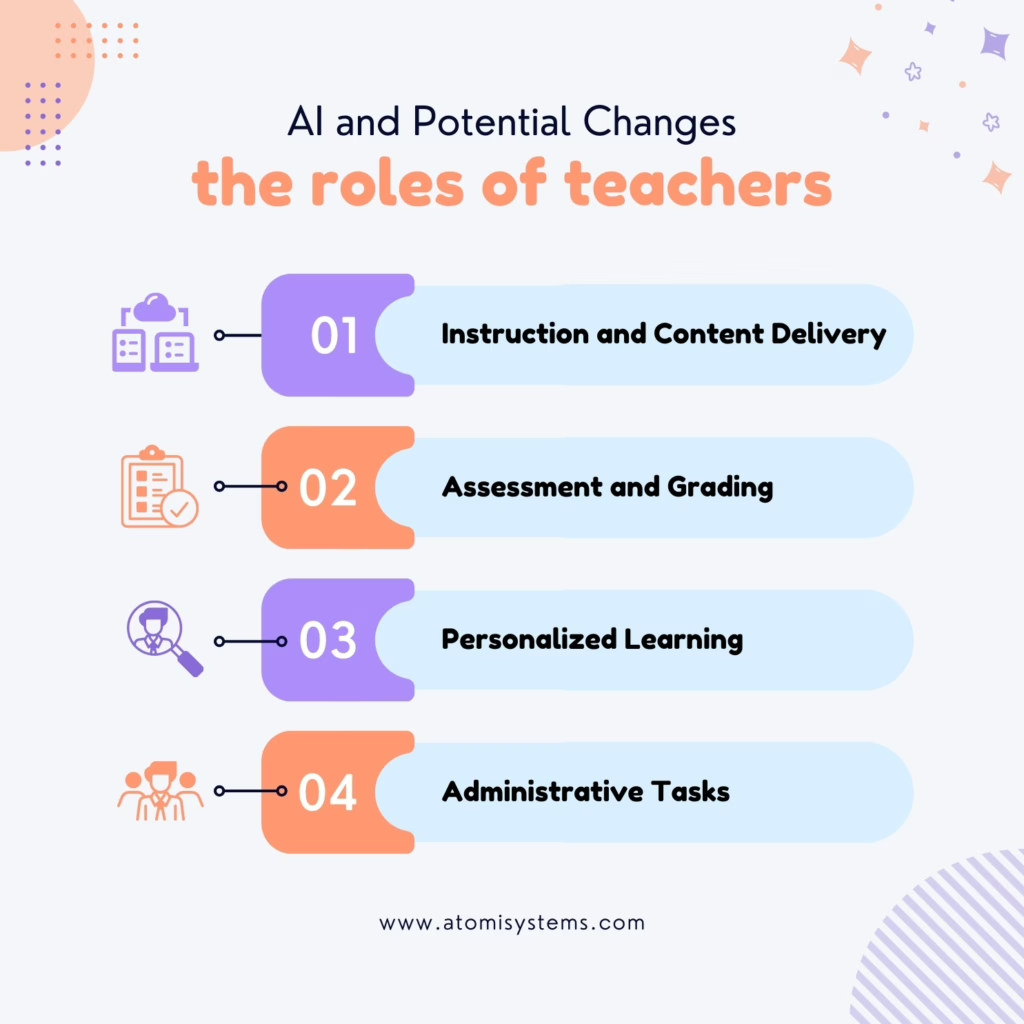Will AI Redefine the Role of Teacher?
As artificial intelligence rapidly integrates into our daily lives, its influence in education is expanding at an unprecedented rate. From automated grading systems to personalized learning tools, AI is reshaping classrooms and the way students engage with learning. But with this technological shift comes a pressing question: Will AI redefine the role of teacher? While some envision AI as a powerful assistant that enhances the teacher’s role, others wonder if it could eventually replace certain aspects of teaching altogether. This article will explore the current and potential impact of AI on teaching roles, examining how AI might complement, challenge, or even transform the responsibilities of educators in the future.
Table of contents:
- Current role of teacher
- AI in Education today
- Potential changes to the teacher’s role
- The Teacher’s evolving role
Before taking a closer look at the article content, you can experience the presentation with the same topic created by an AI-powered presentation maker – uPresenter
Current Role of Teacher
The role of teachers today extends far beyond delivering lessons. Teachers are responsible for various tasks, including instruction, assessment, mentorship, and classroom management. In the classroom, they guide students through complex topics, adapting their teaching styles to meet diverse learning needs and ensuring each student has a solid foundation of understanding. Teachers also assess students’ progress, offering constructive feedback and adjusting their approach to help each learner succeed. Beyond academics, teachers act as mentors, offering guidance on personal growth, social skills, and future aspirations. Their influence is crucial, as they shape students’ academic achievements and confidence, resilience, and curiosity – traits that last well beyond the classroom.
AI in Current Education
AI significantly impacts education through applications like personalized learning platforms, automated grading systems, and virtual tutors. These tools enhance efficiency, offer tailored learning experiences, and make education more accessible to diverse groups of students. In the previous article, we discussed the benefits, drawbacks, and real-world case studies of AI in education. Please refer to that post for a more detailed look.
Potential Changes to the Role of Teacher
As such, AI brings many benefits to education, in general, and to the teacher, in particular. So, which tasks that AI can change the roles of the teacher?

#1. Instruction and Content Delivery
AI could change how teachers deliver content, making instruction more efficient. With AI tools to provide lessons, teachers could spend less time lecturing and more time engaging students in deeper discussions. This shift would allow teachers to focus on enhancing students’ understanding rather than just delivering information.
#2. Assessment and Grading
AI may also impact assessment and grading. Automated systems can handle quizzes and even essay grading, saving teachers time. As a result, teachers could focus more on giving personalized feedback and support where needed most.
#3. Personalized Learning
In addition, AI supports personalized learning paths tailored to each student’s pace and needs. Teachers would act as guides, using AI insights to support students through specific challenges. This could lead to more engaged and independent learners.
#4. Administrative Tasks
Finally, AI can manage many administrative tasks, like tracking attendance and scheduling. By automating these routines, teachers would have more time to connect with students, fostering relationships and focusing on growth.
The Teacher’s Roles Cannot Be Replicated
As AI transforms education, teachers’ roles are evolving to focus more on facilitation and mentorship. Rather than simply delivering content, teachers guide students through personalized learning journeys, helping them apply knowledge and think critically. Importantly, teachers provide emotional and social support that AI cannot replicate, building connections and offering empathy that helps students navigate personal challenges. The human touch in education is irreplaceable – teachers bring understanding, inspiration, and encouragement, essential for fostering students’ confidence and resilience.

In these ways, teachers remain vital to the learning experience, ensuring that education is effective and deeply human.
Last Words
In summary, while AI has the potential to change aspects of teaching – such as instruction, assessment, and administrative tasks – teachers remain essential as mentors and guides. Looking to the future, the role of teachers will likely adapt alongside AI, emphasizing human connection and personalized support. For education to truly benefit from AI, collaboration between educators, policymakers, and technologists is crucial. Together, we can shape an AI-enhanced learning environment that empowers both teachers and students.
Follow our Twitter/X page and YouTube channel for more updates!
See more:

